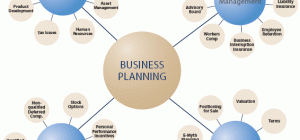 When it comes to being in the position of managing a team, it takes a special kind of person to do it. That one person needs to own a perfect combination of skills, attitudes, and knowledge, in order to be able to coordinate each member of his team. He should also be able to provide better time tracking and set an example for his team members.
When it comes to being in the position of managing a team, it takes a special kind of person to do it. That one person needs to own a perfect combination of skills, attitudes, and knowledge, in order to be able to coordinate each member of his team. He should also be able to provide better time tracking and set an example for his team members.
If you feel like you could use a bit of help or that you got stuck along the way, we are here to offer you seven tips that will put things in motion again and significantly improve them:
- Get the best of the best
Hire employees whose biographical data resembles a lot to the data of those "star" employees you already have. A tight deadline will ask for the best quality of the project too, so the priority should be to hire employees that are best at what they do. They should also be enthusiastic and eager to outrun themselves. You should invest in your employees and this will most certainly bring you the best performance.
- Combining the right skill set with motivation
The fact that managers can motivate their team is a lie. People will only motivate themselves. The team members should be allowed to progress in an area they are interested in and in which they are excellent. This way, they will feel engaged, and any signs of frustration that might haunt them will be gone. In this regard, the manager ought to aid his/her employees uncover their motivation by pinpointing their best personality traits.
- Maintain a balance of skills
One thing about teams is that they all should have a balanced set of skills.All of them will play their part at some point to complete a task, and if just one set of skills is missing, the project could be compromised. This is the exact reason there should be balance between the set of skills and the personality types, so the manager should observe the interpersonal dynamics of the team all the time. A common mistake is combining skills while not paying importance to combining different types of personalities. This will aid in developing positive relationships with the members of the team.
- Handling the team mix
A constant supervision is mandatory, as it is hard to predict if the team mix is going to be successful or not. The way in which the team perceives itself is utterly important. Someone who cannot fit in the team should be removed; otherwise it may affect the team's work efficiency. In this regard, regular discussions with the staff should be held to check out the pulse.
- Recognition and rewarding
A manager should be similar to a coach. He needs to let the people in his team make mistakes. Otherwise, they will not learn anything. He also needs to be able to balance out the good parts of an individual with the good parts of the team. A beneficial behavior should be recognized and rewarded so that it can turn into constant practice, thus helping develop every individual member of the team.
- Perfectionist with the tasks, great with people
The manager should focus on getting things done. He should give space to each member of his team to develop his activity and to be a leader in his area of expertise. If mistakes are made, they should be seen as a valuable learning process for the organization. Team members should be encouraged to take risks and aim at surpassing themselves. Focus on acknowledging the importance of every member of the team.
- Continuous communication and review of performance
There should be transparency in what concerns the communication between the team and its members. In this regard, it's important for the manager to concentrate on keeping everyone objective and focused on the bigger picture in times of ambiguity and changes.
Additionally, the team should constantly be informed of any new modifications, and the manager should make sure that everyone understands his message. He should also provide his team with regular feedback so they will have a reality check of their performance now and then. Continuous communication encompasses priceless beneficial effects that will ensure your team's progress in the long run.
Shared by https://due.com







